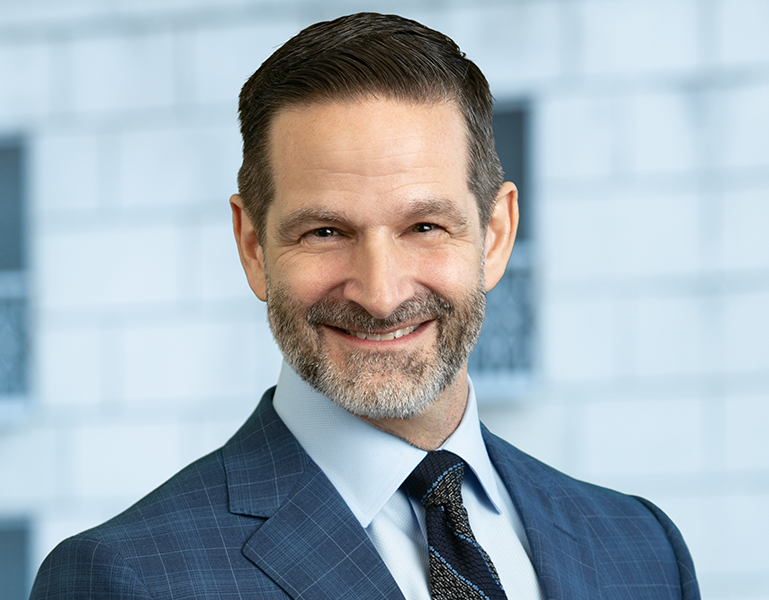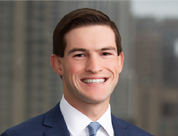DOJ and SEC Commence Parallel Actions Against Former Software CEO for Alleged Fraudulent Scheme
On February 14, 2023, the U.S. Attorney’s Office for the Northern District of Texas arrested Christopher Kirchner, founder of Slync Inc., after charging him with wire fraud for allegedly diverting company funds for his personal benefit. Slync is a Texas-based supply-chain management software company. The SEC filed a parallel civil action against Mr. Kirchner, raising similar allegations but charging violations of the federal securities laws. Mr. Kirchner had served as Slync’s Chief Executive Officer from 2017 until 2022, when its board of directors suspended and later terminated him based on allegations of misconduct. The coordinated criminal and civil actions by the DOJ and SEC underscore the government’s continued emphasis on holding officers accountable for what it characterizes as “corporate greed” and misuse of investor funds.
Criminal Action: Complaint Alleges $20 Million Wire Fraud
The criminal complaint alleges that Mr. Kirchner engaged in wire fraud by diverting $20 million from a Slync bank account to his own. According to the allegations, Mr. Kirchner instructed a Slync employee to approve the funds transfer into an “investment account” which, the government contends, was instead a personal checking account. The complaint further charges that Mr. Kirchner misrepresented to private bankers that the allegedly diverted funds represented a distribution from Slync, which it claims was used to support a “lavish lifestyle.” Under the federal wire fraud statute, Mr. Kirchner may be exposed to up to 30 years’ imprisonment—assuming his conviction and that the alleged fraud “affect[ed] a financial institution.”
Civil Action: SEC Alleges Misappropriation of $28 Million of Investor Proceeds
In SEC v. Kirchner, et al., No. 4:23-cv-00147 (N.D. Tex. Feb. 14, 2023), the SEC charged Mr. Kirchner with violating Section 17(a) of the Securities Act of 1933 and Section 10(b) and Rule 10b-5 of the Securities Exchange Act of 1934. The SEC’s complaint alleges that Mr. Kirchner misrepresented Slync’s financial condition to potential investors and stated that investor funds would be used for product development and to support the company’s growth. The SEC further claims that Mr. Kirchner misappropriated more than $28 million to fund a personal investment entity, buy a private jet, and further a lavish lifestyle. The complaint asks for a permanent injunction against Mr. Kirchner, disgorgement of allegedly ill-gotten gains, a civil monetary penalty, and an officer and director bar.
Key Takeaways
There are several key takeaways from these coordinated and aggressive actions by the DOJ and SEC.
First, the criminal wire fraud charge—which, as charged here, exposes Mr. Kirchner to a 20-year statutory maximum penalty—was commenced by criminal complaint rather than indictment. Ordinarily, significant federal fraud charges like these are presented by the U.S. Attorney’s Office for indictment to the grand jury. And this is for good reason, as the Fifth Amendment ordinarily requires that a felony prosecution begin with an indictment. However, that process was bypassed here, as permitted under the Federal Rules of Criminal Procedure, by presenting the case agent’s declaration and a related complaint setting out the essential facts of the charged offense for approval by a U.S. magistrate judge. Now that Mr. Kirchner has been arrested on the complaint, the government must move quickly—within 30 days—to present its case against Mr. Kirchner to the grand jury or risk dismissal of the charges. Consequently, the government has a very short, self-imposed deadline to present this case to the grand jury or convince Mr. Kirchner to plead guilty.
Second, the criminal complaint identifies Mr. Kirchner as a flight risk if the charges against him were made public before his arrest. This stated risk of flight may explain the government’s decision to file a complaint rather than take the additional time needed to present its case to the grand jury, and also gives insight into whether the government will seek Mr. Kirchner’s continued detention pending trial.
Third, the speed with which these parallel cases were commenced may indicate a renewed level of coordination between the U.S. Attorney’s Office and staff of the SEC, at least in the Northern District of Texas. Highs of course have resulted in well-coordinated and collaborative law enforcement and regulatory initiatives and actions, while periods of low coordination have seen the opposite effect. With a new and seasoned U.S. Attorney now in place in the Northern District of Texas, these cases may be a harbinger of closer coordination and collaborative actions by these two agencies. But that question will be answered in the days to come.
Vedder Thinking | Articles DOJ and SEC Commence Parallel Actions Against Former Software CEO for Alleged Fraudulent Scheme
Article
February 16, 2023
On February 14, 2023, the U.S. Attorney’s Office for the Northern District of Texas arrested Christopher Kirchner, founder of Slync Inc., after charging him with wire fraud for allegedly diverting company funds for his personal benefit. Slync is a Texas-based supply-chain management software company. The SEC filed a parallel civil action against Mr. Kirchner, raising similar allegations but charging violations of the federal securities laws. Mr. Kirchner had served as Slync’s Chief Executive Officer from 2017 until 2022, when its board of directors suspended and later terminated him based on allegations of misconduct. The coordinated criminal and civil actions by the DOJ and SEC underscore the government’s continued emphasis on holding officers accountable for what it characterizes as “corporate greed” and misuse of investor funds.
Criminal Action: Complaint Alleges $20 Million Wire Fraud
The criminal complaint alleges that Mr. Kirchner engaged in wire fraud by diverting $20 million from a Slync bank account to his own. According to the allegations, Mr. Kirchner instructed a Slync employee to approve the funds transfer into an “investment account” which, the government contends, was instead a personal checking account. The complaint further charges that Mr. Kirchner misrepresented to private bankers that the allegedly diverted funds represented a distribution from Slync, which it claims was used to support a “lavish lifestyle.” Under the federal wire fraud statute, Mr. Kirchner may be exposed to up to 30 years’ imprisonment—assuming his conviction and that the alleged fraud “affect[ed] a financial institution.”
Civil Action: SEC Alleges Misappropriation of $28 Million of Investor Proceeds
In SEC v. Kirchner, et al., No. 4:23-cv-00147 (N.D. Tex. Feb. 14, 2023), the SEC charged Mr. Kirchner with violating Section 17(a) of the Securities Act of 1933 and Section 10(b) and Rule 10b-5 of the Securities Exchange Act of 1934. The SEC’s complaint alleges that Mr. Kirchner misrepresented Slync’s financial condition to potential investors and stated that investor funds would be used for product development and to support the company’s growth. The SEC further claims that Mr. Kirchner misappropriated more than $28 million to fund a personal investment entity, buy a private jet, and further a lavish lifestyle. The complaint asks for a permanent injunction against Mr. Kirchner, disgorgement of allegedly ill-gotten gains, a civil monetary penalty, and an officer and director bar.
Key Takeaways
There are several key takeaways from these coordinated and aggressive actions by the DOJ and SEC.
First, the criminal wire fraud charge—which, as charged here, exposes Mr. Kirchner to a 20-year statutory maximum penalty—was commenced by criminal complaint rather than indictment. Ordinarily, significant federal fraud charges like these are presented by the U.S. Attorney’s Office for indictment to the grand jury. And this is for good reason, as the Fifth Amendment ordinarily requires that a felony prosecution begin with an indictment. However, that process was bypassed here, as permitted under the Federal Rules of Criminal Procedure, by presenting the case agent’s declaration and a related complaint setting out the essential facts of the charged offense for approval by a U.S. magistrate judge. Now that Mr. Kirchner has been arrested on the complaint, the government must move quickly—within 30 days—to present its case against Mr. Kirchner to the grand jury or risk dismissal of the charges. Consequently, the government has a very short, self-imposed deadline to present this case to the grand jury or convince Mr. Kirchner to plead guilty.
Second, the criminal complaint identifies Mr. Kirchner as a flight risk if the charges against him were made public before his arrest. This stated risk of flight may explain the government’s decision to file a complaint rather than take the additional time needed to present its case to the grand jury, and also gives insight into whether the government will seek Mr. Kirchner’s continued detention pending trial.
Third, the speed with which these parallel cases were commenced may indicate a renewed level of coordination between the U.S. Attorney’s Office and staff of the SEC, at least in the Northern District of Texas. Highs of course have resulted in well-coordinated and collaborative law enforcement and regulatory initiatives and actions, while periods of low coordination have seen the opposite effect. With a new and seasoned U.S. Attorney now in place in the Northern District of Texas, these cases may be a harbinger of closer coordination and collaborative actions by these two agencies. But that question will be answered in the days to come.

